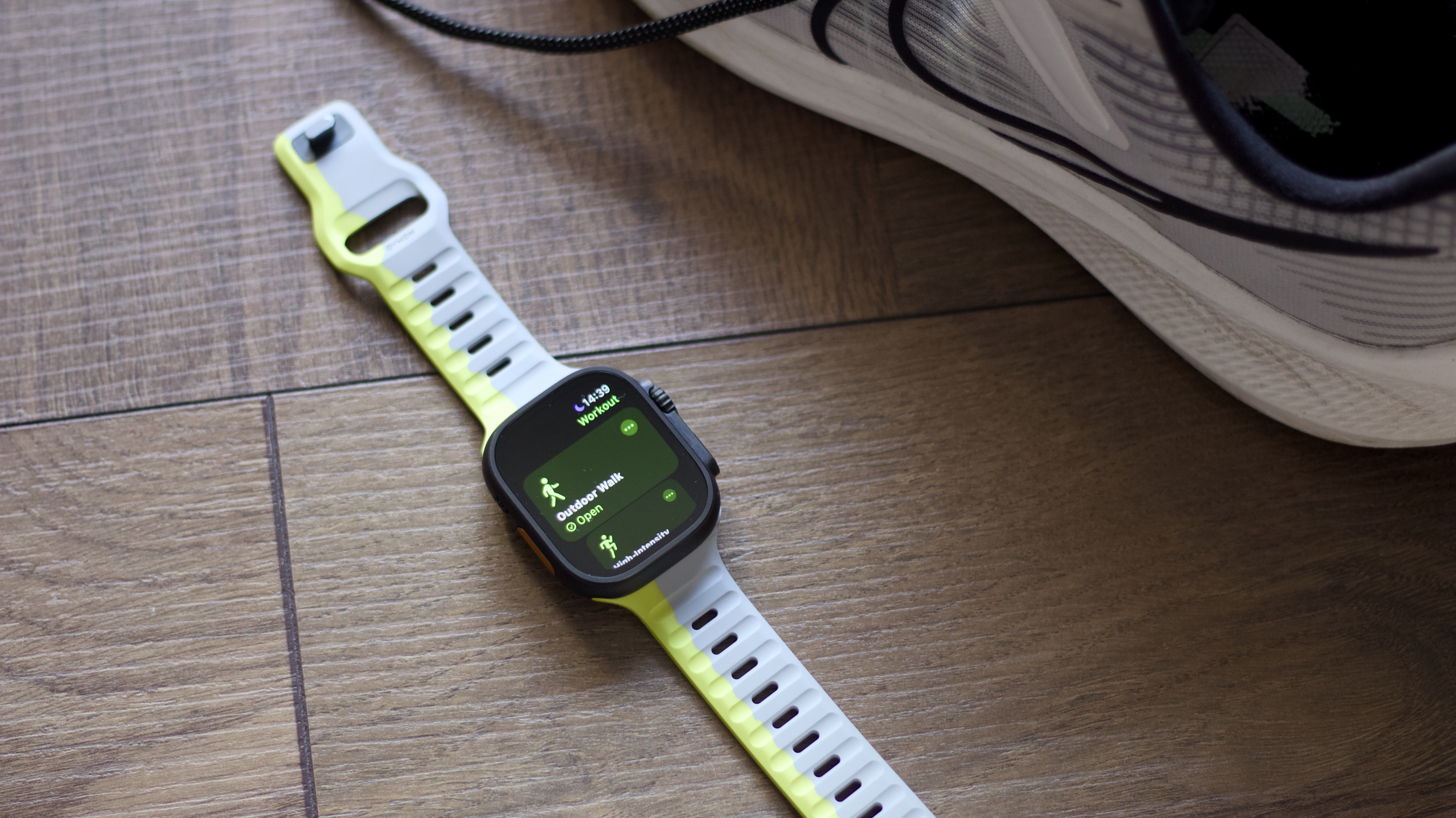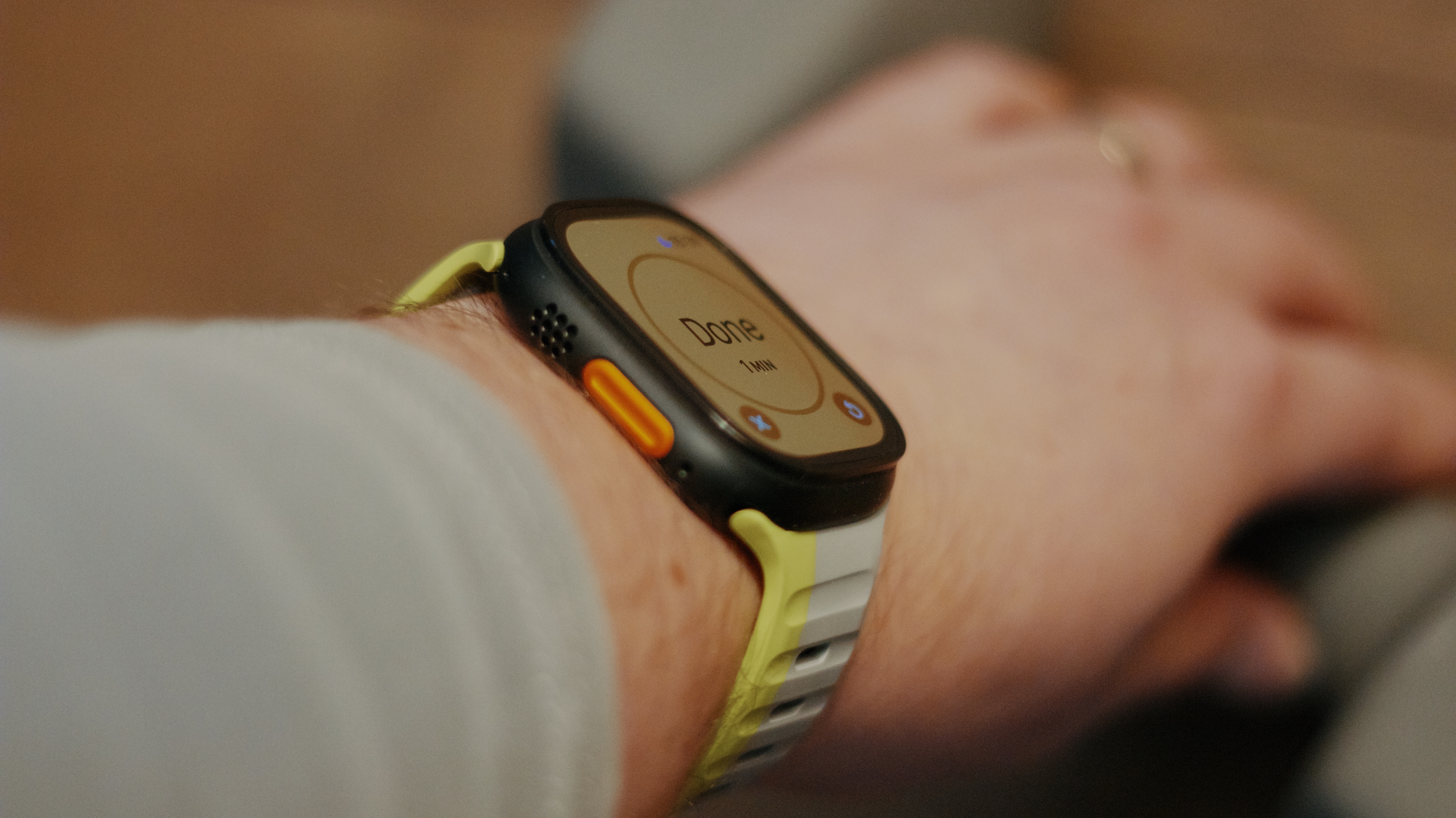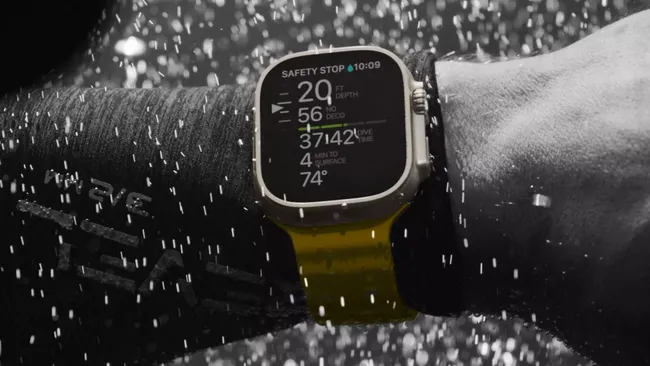I've used my Apple Watch in the gym for a decade – but it still has one crucial weakness
It's time to end accidental button presses

For nearly 10 years the Apple Watch has been an indispensable fitness partner in the gym. I use it every day to track my workouts, calories, time, and more. It keeps me away from the distractions of my phone while keeping me alert to notifications from friends and family. I can use it to control my music and podcasts, time my rest, and more.
But ever since the advent of the Apple Watch, the lineup has suffered from a critical flaw that has been the bane of my gym-going existence. I am, of course, talking about the accidental button-press with the back of your hand.
The growing size of Apple’s wearable line has compounded this issue somewhat in recent years. The best Apple Watch in 2024, the Apple Watch Series 10, is the company's largest main-line model yet, and the Apple Watch Ultra 2's massive size does it no favors either. Gym-going Apple Watch users desperately need an answer to this problem, and I might have found a potential solution.
Setting the scene

For the record, I wear my Apple Watch broadly how Apple says you should. On my wrist, of course, but more specifically on my left wrist, with the side button and Digital Crown on the right, where they can be operated using my right hand. I know that Apple’s Watch setup process lets you orientate the Watch the other way around and that you can wear it on the other wrist. But this is the way I prefer to wear my watch, and it’s the way that most often appears in Apple’s own marketing and promotion shots.
So what’s the problem? At least once every workout, sometimes more depending on the session, I end up pressing the Digital Crown or the side button (or both at the same time) accidentally during workouts. I have fairly normal-sized hands and arms, but I have never not struggled with the edge of my Apple Watch being squeezed up against my wrist or the top of my hand.
It’s particularly problematic during wrist-loaded exercises like pushups, bench press, tricep extensions, dips, squats, or really anything that involves your wrist flexing back towards your elbow.
As Apple has added more functionality to these buttons, the frustrations have compounded over time. I now find myself regularly pausing my workout tracking, or the music that’s playing, inadvertently during workouts. The latter is distracting and can disrupt your flow and rhythm, while the former is particularly annoying if you don’t know your workout is no longer being recorded until several minutes later.
Get daily insight, inspiration and deals in your inbox
Sign up for breaking news, reviews, opinion, top tech deals, and more.
My daily driver is now the Apple Watch Ultra 2, which adds more jeopardy into the mix because of its 86-decibel siren, which I’ve found myself involuntarily triggering on more than one occasion, much to the bemusement of my fellow gym-goers.
The problem is now so bad I routinely have to adjust my Apple Watch ahead of some exercises, and in my frustration, I’ve even removed it altogether in a huff.
It’s not a deal-breaker for me, but it’s the most joyless part of owning an Apple Watch that I find to be otherwise flawless for all my gym-going and fitness-tracking needs. However, I think I might have come up with a solution.
A solution close to home

If you’ve used Apple Watch in the shower, bath, or for swimming, you’ll know it has a fairly sophisticated Water Lock system designed to prevent accidental touchscreen inputs in water. Water Lock is used at the end of swims to eject water from your speakers, but more importantly, it stops your Apple Watch from detecting touchscreen inputs that could disrupt your workout tracking or even end it altogether.
It’s impossible to turn off Water Lock by accident, and I really like it as a feature for swimming. So why can’t Apple adopt a reverse button press feature for workouts? What if watchOS 11 had a feature that could disable button presses by default during certain types of workouts, and that could only be unlocked by touch screen input or a deliberate button press like holding the Digital Crown?
The Apple Watch’s buttons are important for Emergency SOS features and can be used to pause workout tracking or mark segments in a session, so I’m not suggesting a feature that prevents their use altogether. But something, anything that could make these buttons just a bit harder to accidentally activate while weightlifting would be an absolute life-saver and a feature I’d never turn off.
A more advanced implementation could even use accelerometer data to detect when an exercise is in progress, disabling the buttons during sets, but reactivating them while you’re resting. It’s a niche feature but one that could also benefit runners or triathletes worried about accidentally disrupting their workout tracking during events. The Water Lock feature that prevents accidental touchscreen incidents is genius, and I don’t see why Apple’s physical buttons can’t get a similar feature.
The final piece of the puzzle
I won’t be ditching my Apple Watch in the gym anytime soon, but I would love to believe the device has a future where accidental button presses in the gym are a thing of the past. I truly believe it’s the only thing holding the device back from perfection. Until then, I’ll keep struggling away with adjustments and the occasional siren to keep the rest of the gym on their toes.
You might also like...

Stephen Warwick is TechRadar's Fitness & Wearables writer with nearly a decade of experience covering technology, including five years as the News Editor of iMore. He's a keen fitness enthusiast and is never far from the local gym, Apple Watch at the ready, to record his latest workout. Stephen has experience writing about every facet of technology including products, services, hardware, and software. He's covered breaking news and developing stories regarding supply chains, patents and litigation, competition, politics and lobbying, the environment, and more. He's conducted interviews with industry experts in a range of fields including finance, litigation, security, and more. Outside of work, he's a massive tech and history buff with a passion for Rome Total War, reading, and music.